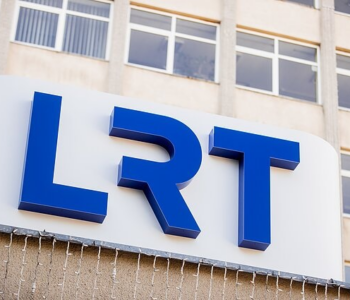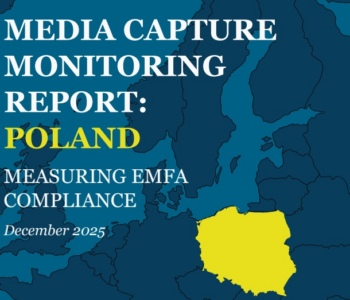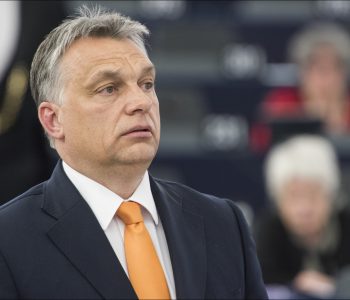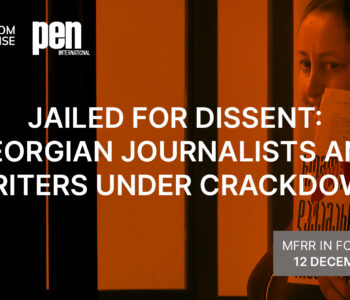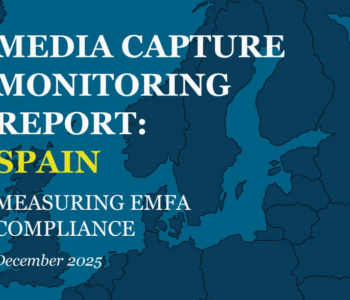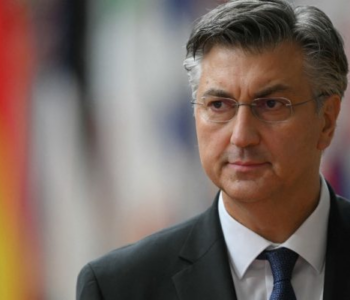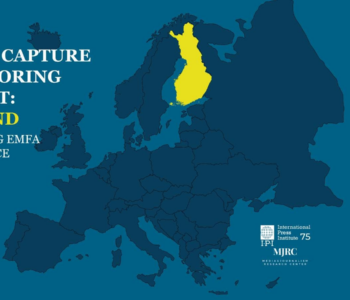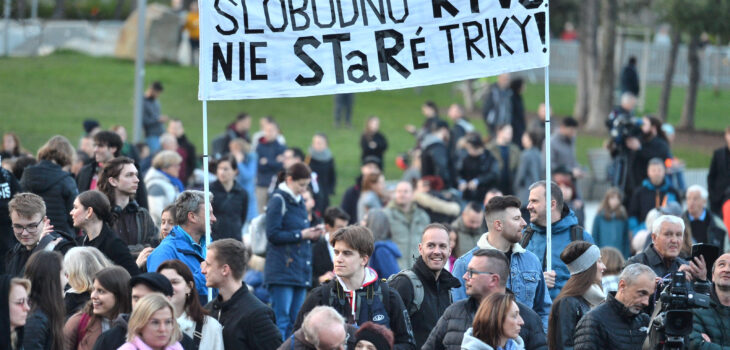
Call for withdrawal of Slovakia’s repressive broadcast law
Journalists and media freedom groups call for the urgent withdrawal of a proposed legislation allowing political control over public-service media in Slovakia. The bill threatens independent information, especially before the June European Parliament elections, contradicting the recently voted EU’s Media Freedom Act.
On March 11, the Slovak government announced a plan to dissolve Radio and Television of Slovakia (RTVS) and replace it with the new Slovak Television and Radio (STaR). The Ministry of Culture’s draft law includes drastic changes to the appointment and competence of oversight bodies, which would set up a government control and effectively end the public broadcaster’s independence.
Upon the passing of the law, the ruling majority of Prime Minister Robert Fico will replace the Director General of the public media and the members of its oversight body ahead of the previous legal end of their mandates.
The new Director-General will be appointed by the new Board of STaR, which will consist of seven members, four appointed by the Parliament, three by the Ministry of Culture, effectively handing the governing parties full control over the Board and the appointment of the Director General. The Board also receives the new power of being able to dismiss the Director without having to provide any grounds, although the ruling coalition has since said they will remove this element following criticism.
Moreover, an entirely new institution, the Programme Council, is to be formed in order to coordinate STaR’s programming and ensure its “compliance with the public nature of broadcasting.” Nine out of eleven members of this body will be appointed by Parliament and enable direct political control over editorial policy.
The Act on Slovak Television and Radio (STaR) is being rushed through parliament via an abbreviated inter-ministerial and public consultation procedure until March 19. On March 17 Prime Minister Robert Fico called on the Parliament to approve the law in an accelerated legislative procedure starting in April. The bill could hence be approved before the elections to the European Parliament taking place on 8 June.
Opposition to the government’s power grab over the public broadcaster is mounting. By March 18, over 1,200 RTVS employees and external collaborators had signed a petition urging the withdrawal of the draft law. The following day, almost three hundred Slovak editors and journalists signed a joint statement denouncing the law, and expressing solidarity with RTVS.
Slovak President Zuzana Čaputová joined the critics, saying that the law is likely to violate the principles of free political contest and the prohibition against censorship, as well as being “in direct contradiction with the new European Media Freedom Act” which lays down strict safeguards on the independence of public service media.
The bill also goes against the European Commission’s 2023 Rule of Law Report which called on Slovakia to “enhance the independent governance and editorial independence of public service media.”
We welcome the statements of European Commission Vice-President Věra Jourová expressing her concerns during the European Parliament debate before the adoption of the European Media Freedom Act on March 12, and later stating that it may lead to the end of independent reporting by public media in Slovakia.
The undersigned media freedom organisations condemn the Slovak Television and Radio bill. We are deeply concerned that this bill is designed to enable the political take-over of RTVS and its conversion into a state propaganda outlet in the service of the government. We call on the Minister of Culture to immediately withdraw the bill.
In a joint open letter, we further call on the institutions of the European Union to urgently address this threat to press freedom at the heart of Europe. The political control of public media threatens the integrity of the upcoming European elections by politicising political coverage of the campaigns and denying the public to independent and pluralistic sources of information.
This statement was coordinated by the Media Freedom Rapid Response (MFRR), a Europe-wide mechanism which tracks, monitors and responds to violations of press and media freedom in EU Member States and candidate countries.

